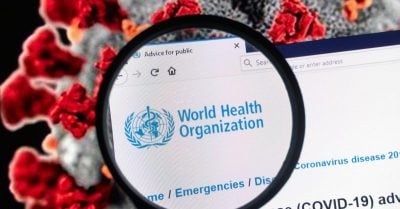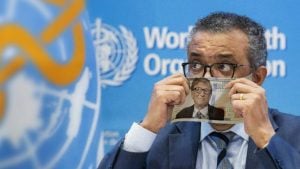Exposing the WHO’s Hidden Influence on National Health Policies
How Global Health Organizations Are Hijacking Sovereignty and Undermining Ethics

Introduction: An Urgent Conversation with Lucinda Van Buren
In my recent interview with Lucinda Van Buren, we delved into the alarming impact of global health organizations, particularly the WHO, on healthcare systems worldwide. Lucinda, a nurse with over 26 years of experience, has been an ethical beacon throughout the COVID era, preserving scientific integrity in a field fraught with political and financial agendas. Our discussion shed light on the troubling, often covert influence of the WHO and its affiliates in shaping national health policies that bypass local needs and ethical standards.
.
.
The WHO Collaborating Centers: A Global Network with National Consequences
One of the most startling revelations in our discussion was the WHO’s extensive network of collaborating centers embedded within various national institutions. In Australia, Lucinda explained, these centers exist in universities, government agencies, and healthcare organizations, each tasked with promoting WHO directives. This network, guided more by global agendas than local interests, exemplifies a trend toward centralized control that undermines national sovereignty and accountability.
Conflicts of Interest: WHO’s Funding and the Influence of Private Donors
Image is from Dr. Rath Health Foundation
A significant point of concern lies in the WHO’s funding sources, with private entities like the Bill & Melinda Gates Foundation contributing heavily. This financial structure has raised ethical questions, as WHO policies often align closely with the interests of these donors. The organization’s aggressive promotion of COVID-19 “vaccines,” despite mounting evidence of adverse effects and limited efficacy, reflects this influence. It has become clear that the WHO’s policy priorities do not align with the well-being of the public, but instead with the financial interests of its most significant benefactors.
Ethical Violations and Psychological Coercion in Healthcare
Lucinda spoke passionately about the erosion of medical ethics she witnessed firsthand. Throughout the pandemic, healthcare workers were pressured into compliance with mandates, often at the expense of their ethical responsibilities to patients. For those like Lucinda who resisted, the professional consequences were severe, yet they underscored the importance of integrity in healthcare. She highlighted the psychological manipulation that leveraged fear to enforce compliance, and how her practice of mindfulness and meditation enabled her to see through this coercion.
Reclaiming Healthcare from Global Control: A Call to Action
Our conversation concluded with a powerful message on the need to reclaim control of healthcare from unaccountable global entities. The WHO’s actions during the pandemic—redefining medical terms, monopolizing health narratives, and utilizing its vast network of collaborating centers—underscore the dangers of centralized authority over national health policy. To protect public health, we must hold these organizations accountable, ensuring that healthcare policies prioritize the welfare of the people they serve.
Conclusion: The Path Forward
Lucinda’s courage in speaking out highlights the responsibility we all share in holding these organizations accountable. As healthcare professionals, citizens, and advocates, we must work to dismantle these global mechanisms that undermine transparency and ethics in healthcare. Only by restoring sovereignty and accountability can we ensure that public health policies genuinely serve the interests of the people.
*
Click the share button below to email/forward this article to your friends and colleagues. Follow us on Instagram and Twitter and subscribe to our Telegram Channel. Feel free to repost and share widely Global Research articles.
Don’t Miss Out on Global Research Online e-Books!
Featured image is from Children’s Health Defense



